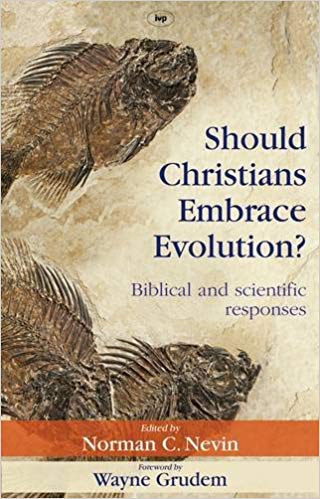Each generation brings distinctive challenges to Christians.
Those developing a world view built on Christ and biblical revelation experience the stigma of standing against the current of opinion held by their peers in society. Enduring this stigma carries a cost in the short-term, but the long-term fruits make it all worthwhile.
The thesis of this book, articulated clearly by R. T. Kendall, is that the stigma today comes to those who resist the claim that an evolutionary understanding of origins should be the window through which we read and understand the Bible.
Major traditional teachings have been challenged by evolutionary science. These include creation ex nihilo; the goodness of God in creation (theodicy); the historicity of Adam and Eve; the spiritual nature of divine image-bearing; human death as a consequence of disobeying God’s command; and the curse on creation resulting from Adam’s sin.
The implications are immense. For example, why was it necessary for Christ to die on the cross if physical death is not the consequence of sin?
The theology of origins is helpfully discussed by several contributors to this book. According to David Anderson, biblical theology recognises that God speaks through real events, but theistic evolutionists have driven a wedge between history and the message. He finds many evidences of a modern gnosticism — divorcing the physical from the spiritual and bringing teachings no longer grounded in historical events. ‘The inevitably disastrous results mean that [theistic evolution] cannot be a side-issue.’
The important topic of biblical hermeneutics is tackled by Alistair McKitterick in relation to the language of Genesis. By focusing attention on the culture of the Ancient Near East, many scholars approach Genesis as a coded, demythologised text, with tenuous or ambiguous historical roots.
On these grounds, many theistic evolutionists have pointed to differences between Genesis 1 and Genesis 2 to support their view that Genesis teaches theology only. McKitterick, however, argues strongly that these are not two separate creation accounts. He also shows that theistic evolutionists get their theology wrong because they have not grasped the integrated nature of the Genesis account of creation.
Most of the contributing authors make reference to Denis Alexander’s 2008 book, Creation or evolution: do we have to choose? This was hailed by some as the best exposition of a theistic evolution approach to origins. Alexander made extensive use of evidences for evolution, but, sadly, did not interact in any significant way with the writings of scientists critical of these evidences.
However, Should Christians embrace evolution?provides a helpful sample of scientific responses to those evidences. There are notable chapters by geneticist Dr Geoff Barnard (evidence for chromosomal fusion in humans and its significance) and Professor John Walton (evidence relating to the origin of life).
Overall, it is a masterly and helpful book that scratches where people itch. It should be read by all church leaders, teachers, professional scientists and science students, and be on every church bookstall.
The editor, Professor Norman Nevin, is a geneticist who speaks and writes with authority. At the book’s conclusion he writes: ‘No coherent, cohesive theology has yet been offered that would allow Christians to embrace evolution with integrity.’ He also quotes Professor J. P. Moreland: ‘Theistic evolution is intellectual pacifism that lulls people to sleep while the barbarians are at the gates.’
Undoubtedly, this book serves as a rousing wake-up call!







